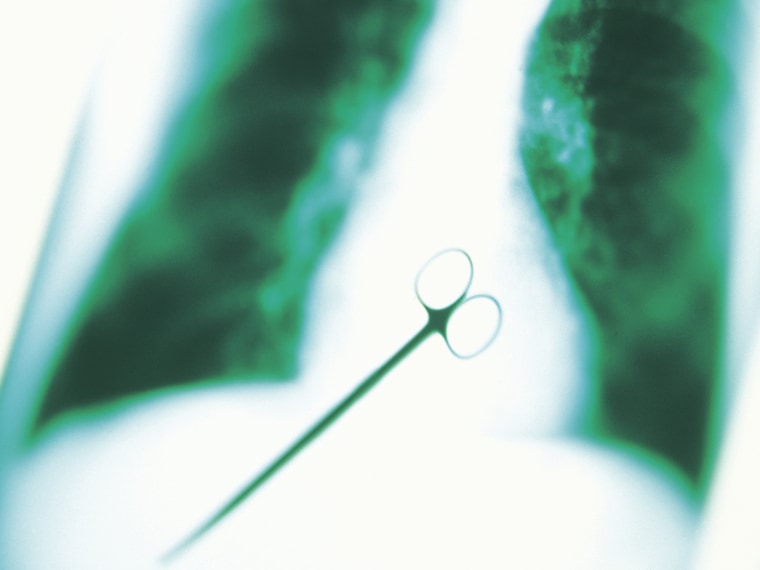
Medical mistakes are now estimated to kill up to 440,000 people in U.S. hospitals each year, making preventable errors the third leading cause of death in America behind heart disease and cancer.
Wrong doses of drugs, undetected tumors, objects left behind in patients’ bodies: Such errors — and many more — are an “everyday occurrence,” experts say.
But eliminating errors has proven difficult, especially in a health care culture where doctors and other providers are reluctant not only to admit their own lapses — but also to report when others mess up as well.
New guidelines issued today are aimed at tackling that problem, and helping ease the thorny dilemma of whether, when — and how — doctors should disclose their colleagues’ mistakes.
“Progress on patient safety has been much more limited than anyone would like,” said Dr. Thomas Gallagher, a University of Washington professor of medicine and bioethics who led the team behind guidelines published in the New England Journal of Medicine.
“We haven’t made enough headway in improving communication. The difficulty physicians have in communicating with one another when something goes wrong is an important factor,” added Gallagher, who has been working on the issue for a decade.
Power dynamics, professional courtesy and a medical culture that shies away from confronting colleagues all play into the problem.
“The historical norm is that being a good colleague means not saying anything, having their back, when you think they’ve made a mistake,” Gallagher said. “We’re asking people to turn toward their colleagues in those instances.”
The overall goal is to help patients, particularly those who’ve been harmed by a medical mistake. They deserve a full accounting of the problem and “should not bear the burden of digging for information” — or encounter a system that closes ranks against them, the paper says.
The trouble is, colleagues detect or observe others’ errors all the time, said Art Caplan, a bioethicist at NYU Langone Medical Center, whose job includes the duty of refereeing such sticky situations.
“Dealing with errors and near misses is an everyday occurrence at a big hospital,” he said. A medical student may notice that a senior doctor wrote the wrong dose on a prescription, for instance, or a doctor may notice that a colleague inserted a catheter or other device incorrectly, endangering a patient.
Sometimes, a colleague’s mistake is as obvious as the image on an X-ray, says Dr. Michael Bresler, interim head of radiology at the University of Illinois Hospital and Health Sciences System.
“There have been cases of a radiologist missing a very small tumor that a year later becomes a very large tumor,” he said. “About once a year, there’s a bad one, with a bad outcome.”
The new guidelines offer explicit direction to doctors and their hospitals. “Explore, don’t ignore,” the authors say. Talk to colleagues directly and respectfully, the guidelines say, and have a clear plan about who will talk to patients, too.
Hospitals that have implemented programs that offer doctors help in confronting others’ errors say that the immediate result is that reports of mistakes go up.
“We’ve created a culture where we’ve gone from 1,500 to 9,000 occurrence reports a year,” said Dr. Tim McDonald, a physician and attorney who oversees efforts to improve patient safety at the University of Illinois, Chicago.
That’s a good thing, said McDonald, because it allows staff to address the system that allowed a mistake to happen in the first place — and it creates support for the doctors who made the error, all with the patient’s best interests in mind.
In the case of the missed tumor on an X-ray, Bresler is the senior doctor who had to bring it to a colleague’s attention. It’s a tough conversation, he said.
“Whenever you get a call from risk management, it’s a very unpleasant situation to be in the position of knowing you’ve done something that might have harmed someone,” he said. “Physicians have been devastated by missing things.”
But he’s also the doc who sits in on conversations with patients, offering explanations — and, often, apologies — for the mistake. Thirty-seven U.S. states, including, this month, Pennsylvania, now allow doctors to apologize for medical mistakes without fear that the “I’m sorry” will be used against them in a malpractice suit.
It’s part of a changing culture that doesn’t excuse negligence or incompetence, but recognizes that “this person is human,” Bresler said.
An early adopter, the University of Michigan Health System, found that apologizing for medical errors reduced overall malpractice and claim costs.
Helping doctors address their colleagues’ mistakes directly is another step in a long effort to cut errors overall, Gallagher added.
“I’m more excited now than I’ve ever been about the potential for really transformative change,” he said. “But I think we’ve got a long ways to go.”
JoNel Aleccia is a senior health reporter with NBC News. Reach her on Twitter at @JoNel_Aleccia or send her an email.